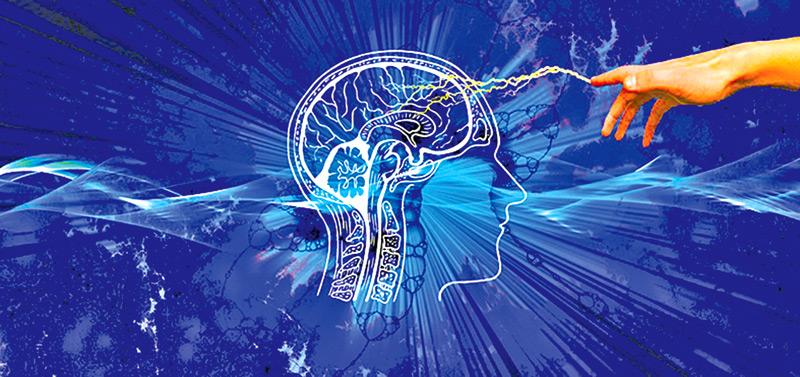
You may have heard of Ronald L. Graham, a 57-year-old mathematician in the United States who was learning Japanese and playing golf. He had also learnt to speak Chinese, throw a boomerang, play the piano and beat others at table tennis.
 You might wonder whether he was going crazy. No, he wanted to keep his brain active to solve thorny mathematical problems. According to him, when you learn Chinese – one of the most difficult languages – you stretch your brain in different directions. Playing golf sharpened his mind. He believed that the more you used your brain, the better it would perform.
You might wonder whether he was going crazy. No, he wanted to keep his brain active to solve thorny mathematical problems. According to him, when you learn Chinese – one of the most difficult languages – you stretch your brain in different directions. Playing golf sharpened his mind. He believed that the more you used your brain, the better it would perform.
We have often heard the old adage: “Use it or lose it.” It simply means that if you do not use a particular organ, it will lose its ability to function well. The theory applies to the brain as well. Most of us do not use our brains to their full capacity. Neuroscientists and psychiatrists always emphasise the fact that you have to challenge your brain by reading difficult books, taking up a few hobbies or volunteering to work outside your comfort zone. When you do so, your brain will remain vigorous and creative into your old age.
Like any other human organ, the brain is also subject to change over the years. However, if you keep your brain active, you will enjoy the ability to think clearly even in your old age. Dr Gene Cohen, an expert on ageing, said people with active brains will not suffer mental deterioration as they get older. Certain changes occur in the brain not due to ageing but other causes such as illnesses or medications.
‘Mobile encyclopaedia’
You may have come across elderly people such as Dr. Edwin Ariyadasa who had an active brain well into his 90s. He was well-known as a ‘mobile encyclopaedia’ always ready to come up with answers to various problems. The question arises now whether such people retain their mental acuity right throughout their lives. Apart from leading a healthy life, they used to challenge their brains continuously.
Dr. Ariyadasa remained active until his death attending seminars, delivering lectures on diverse topics and contributing to newspapers regularly. Dr John Stirling Meyer at Baylor College of Medicine in Houston, Texas, tried to determine whether people who did not challenge their brains experienced any decline in mental abilities. His experiment confirmed that inactive people showed less blood flow to their brains. They also fared poorly in IQ tests.
The idea that people can maintain their mental skills by continuously challenging the brain, however, remains controversial. May be similar studies may have to be done to determine whether challenging tasks make your brain active. The present hypothesis is grounded on animal experiments. Nonetheless, it is Khachaturian’s guess that by using different parts of the brain, you can coax nerve cells to make connections they might not otherwise make.
Psychologist Herbert Weingartner has confirmed that changes can occur in the brain if you allow it to function more effectively. In addition, many other experts believe that there are positive benefits that can be achieved from challenging the brain. However, challenging the brain does not mean memorising enormous amounts of information. According to psychologists, such skills do not have an impact on brain health.
The brain has to be challenged with different skills. For instance, an 80-year-old person can learn how to play the violin. Khachaturian studied many languages at the age of 55 and engaged himself in woodwork and repairing machines. Cotinan began to paint landscapes at 52. He also built rock walls. Such activities made their brains sharp.
Different skills
Meanwhile, Gene Cohen suggested that old people should take up solitary mental and physical activities such as reading, brisk walking or swimming. Even dancing or playing bridge or tennis would produce positive results. Psychologists emphasise that elderly people should take part in mental and physical activities to remain happy.
What you have to remember is that your brain is the most complex object in the universe. Every second more than ten billion neurons send electrochemical signals round your head at speeds of up to 400 kilometres an hour. On the other hand, some of the greatest ‘eureka moments’ occur when we are active – swimming, hiking or even running to catch a bus. When you do physical exercises, the conscious brain goes into a relaxed state. This is somewhat similar to meditation. When you go for a walk early in the morning, your mind gets clearer and more creative.
If you wish to keep your mind active, change your environment every now and then. A change in the environment will make you more alive to your surroundings. In this receptive state, your brain can be more alert to new ideas.
The brain does not work from nine to five. Like the heart, it works all the time as long as you live. The brain learns and remembers best when your focus is greatest. Video games focus attention and get us to repeat moves over and over. They are very powerful tutorials. They present an opportunity for training the brain. At their best video games are controlled training regimens that result in enduring physical and functional neurological remodelling. Michael Merzenich,a neurologist at the University of California said the design of games was meant to retain the brains of older people with neurological deficits like memory loss and dementia. [email protected]
